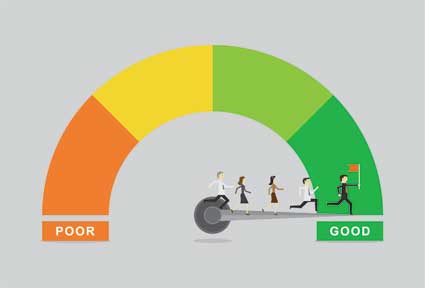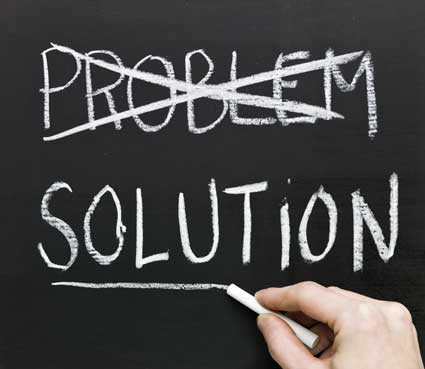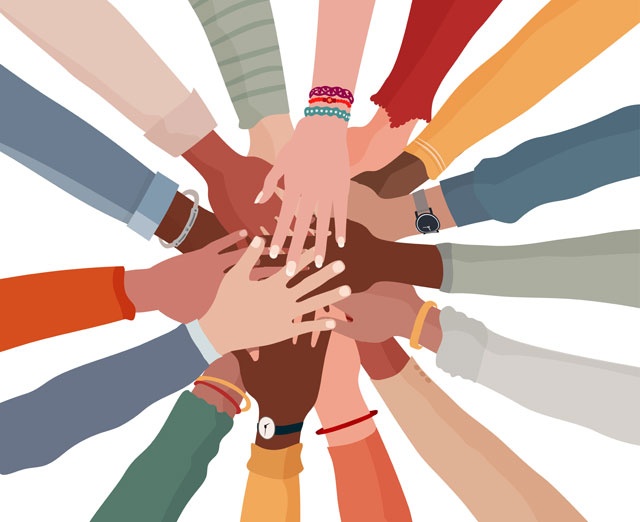For most of us, the concept of negotiation is something that should be tucked away and kept within the legal corners of society. These days, disputes over money, relationship separations, and other interpersonal conflicts often grow to such proportions that it seems like the only recourse is to hire a lawyer and go through the tedious process of lawsuits and court dates.
Objectives
In this article, you will learn what mediation is and how it is used.
-
How does a mediation case differ from legal proceedings?
-
What are the qualities of a good mediation case?
-
What is the philosophy behind mediation both historically and today?
Mediation Basics
Mediation is a formal but not legally binding meeting between two parties (a complainant and a respondent), and a mediator with the intent of settling a dispute. The complainant is the individual who wishes to seek a resolution. The respondent is the second party against whom the dispute is being made, in law, this would be the individual "defending" the case being brought against him or her. The mediator is an unbiased, third party who can direct the proceedings with as little conflict and wasted resources as possible.
Unlike formal law or other forms of negotiation, mediation is generally considered a voluntary, collaborative process that focuses on the best outcome for both parties. Compare this to legal systems, which often focus on each party trying to "win" or somehow get the greatest financial reparation possible from the other party.
Mediation is a little more complicated than that, however. Before a case can be considered for mediation, the situation and the parties must fall under certain mediation qualifications.
-
Mediation is voluntary. No party is forced to be there, and the process may be stopped at any time. No legal recourse will result should one party end the mediation before a conclusion has been reached.
- Mediation is cooperative. Both parties must be willing to "give-and-take" so that the result is one that is in the best interest of everyone involved.
- Mediation is limited. In legal cases, the law can decide what a person may or may not do. In mediation, both the complainant and the respondent can refuse any part of the outcome.
- Mediation is low key. In mediation cases, there is typically little fanfare or press coverage. In the event that both parties agree upon it, confidentiality can be made formal by contract, but it is not required. No one can force the complainant or respondent to disclose any information they do not want to.
- Mediation is formal. Although not as formal as traditional legal proceedings, the purpose behind mediation is to create a professional, neutral atmosphere in which to reach a conclusion. To this end, the mediator should respect certain rules, mediation laws, and best practices to maintain formality.
- Mediation is fair. The best mediators are the ones who know how to remain impartial, neutral, and balanced throughout the entire process. Issues of ethics and confidentiality are key, and no one should feel pressured or coerced to give up any of their rights. It is also fair in that the complainant and respondent should not have an imbalance in their own relationship (that is, one party should not have substantially more money or have a history of any type of abuse with the other party).
- Mediation is personal. No matter how formal and balanced the mediation is, the issues at hand are often ones that affect people's lives in a major way, and the decisions they make are ultimately their own. To reach conclusions that will realistically be put into practice without further dispute, it is typically necessary to take into account issues of self esteem and participant satisfaction.
The Philosophy of Mediation
As a practice, mediation actually goes back thousands of years. While we tend to think of it as an alternative to the current legal system, it has been around in some form or another for as long as people have felt a need to communicate ideas and settle disputes. From ancient Greek debating practices to the feudal system in which single, powerful landowners settled disputes based on their own principles of right and wrong, mediation has always been relied on to keep the peace.
What is most important in understanding the philosophy of mediation is that it is not dependent on a set of exterior laws or requirements. In most societies, there are laws that govern what we can and cannot do as human beings, and mediation has no desire to change or alter those laws. Yet, while no mediation outcome can exist in defiance of the law, it goes above and beyond external parameters to allow a more humanistic approach to dispute settlement. After all, the purpose is not to assign blame or uphold a strict moral code. The purpose of mediation is to allow two (or more) people to sit down and communicate, through a mediator, to come up with a solution that takes their own concerns to heart rather than society's or the legal system's.
In philosophy, this idea is known as "natural law." In natural law, we move beyond courts and formal processes to do what is right for each person on an individual level.
Introduction
While the use of mediation for settling disputes has increased in recent years, it is still secondary to traditional court cases. That is because mediation has a bit of a reputation for lacking in the formality or official status that comes with a court order or judge's decree.
As a mediator, you will be to help change the way people see mediation and how they use it to work through issues in their own lives. By knowing when mediation is the best idea and when to turn a case away, you will be able to build up a professional case history that has almost universally satisfactory outcomes. After all, allowing people to settle disputes and move on with their lives is what mediation is really all about.
Objectives
- What are the benefits of mediation?
- When is it a good idea to use mediation in place of formal legal processes?
- When is mediation not a good idea?
- What are some of the more common mediation case examples?
Benefits of Mediation
Mediation is usually a cheaper, more time effective alternative to the legal court process. Moreover, in addition to the physical and financial benefits, there are other reasons why more people are turning to mediation to settle their disputes and why more people are becoming mediators for their own professional edification.
Repair dysfunctional communication. Mediation allows individuals to air grievances that often are left unsaid due to working or personal relationships. While we all like to think that we will address conflicts as they arise, many feelings and resentments get pushed aside for the good of the business, for the sake of the children, or to simply to avoid confrontation. In a mediation setting, it has already been decided that this will be the time to enunciate deep feelings and either a) work toward a solution or, b) dissolve the relationship amicably. In both situations, there is room for getting rid of emotional burdens, thereby freeing up both parties to get to the more pertinent issues of logistics.
Lower costs. Generally, mediation costs less than going through the court process. In simple cases, the mediator may be able to handle the entire proceedings on his or her own, meaning that parties may only have to pay a mediator fee or a fee for the location. In more complicated scenarios, particularly those in which legal advice, financial counseling, or paperwork filed with the courts is necessary, the costs still tend to be smaller than what can be expected with a full legal case.
Rapid settlements.Mediation can greatly reduce the time investment involved in settling a dispute or disagreement. In traditional court cases, it can take up to several years to find lawyers, set a date, and go through any necessary appeals. Because both parties choose mediation, it is typically done with an eye to getting things settled as quickly as possible, so they can move on with their lives. This means that the time investment for the mediator is greatly reduced, as well.
Better outcomes with greater compliance. In most of today's lawsuits, one party is responsible for bringing the case (the plaintiff) and another for responding to the accusation or lawsuit being made (the defendant). While there may be similar roles in a mediation case, most participants are there willingly and with the intention of finding a solution that works for everyone. This means that the outcome of the case is usually more mutually satisfactory, and both parties are more likely to comply with the terms decided upon during the proceedings.
Greater freedom of decision making. The settlements and terms that arise from mediation may or may not be legally binding, depending on whether a contract is signed or paperwork is filed with the courts. Most cases are finalized with a written agreement, which is not bound by law but is still more formal than a handshake or verbal agreement. This means that the parties can rely on issues not necessarily dictated by law to make the best decision for their particular situation. This kind of freedom from a third party means that while the outcome might not be what a judge would choose it is what the parties choose. This also allows the parties to feel more empowered about their choices and even salvage relationships that may be in danger due to the conflict being presented.
Practical applications. Although most mediators without a legal background will find themselves working on fairly small, personal cases, there are applications for the corporate sector, as well. As a tool, mediation can go a long way in boosting a professional resume, particularly in industries where change, competition, and economic pressure play key roles. Not only can mediation help in navigating customer complaint issues, but also Human Resources professionals who work with employee conflict management can use it.
While mediation is a great step for many individuals looking to reach mutually satisfactory outcomes to disputes or disagreements, it is not for everyone. In most cases, it is the job of the mediator to refuse a case, suggest a more formal legal process, or advise to include legal counsel in the mediation process when approached by certain requests. Some of these situations include the following.
- A history of violence or abuse between the parties.
- A particularly traumatic divorce (one that is not desired by BOTH parties).
- A sense of wrongdoing from the other person, or an individual who wants to "win" through mediation.
- A high rate of emotional distress or anger.
- A possibility that one or both parties will not stick to the outcome if it does not go their way.
It is important to remember that while you may be a strong supporter of mediation, it can be harmful if the party's walk away feeling more wronged than before. Always use your best judgment, and try to have a legal counselor you can turn to if you have questions or referrals on the cases that come your way.
Examples of Mediation Situations
While this list is not comprehensive, it offers a good look at some of the more common mediation situations.
- Business partnerships in which a partnership agreement was not drafted or comprehensive enough to cover a particular dispute.
- Neighborhoods or condominium communities in which disagreements on housing regulations and rules arise.
- Financial disagreements between friends, family members, neighbors, or business partners.
- Arguments over any co-owned property, including businesses, inheritances, land, houses, or apartments.
- Divorce in which both parties want to work together to dissolve property and settle child custody issues.
- Family inheritances that are not stipulated by will or are otherwise complicated by circumstance.
- Issues between co-workers, including harassment and communication grievances.
- Property owner and tenant issues, including domestic and agricultural situations.
- Disagreements that arise from the outcome of an insurance claim, usually between the insurance company and the insured.
- Business situations between companies who are awaiting payment, are unhappy with product outcomes, or are not honoring specified timelines.
- Personal injury and negligence, as long as both parties are willing to reach a reasonable outcome without legal recourse.

































